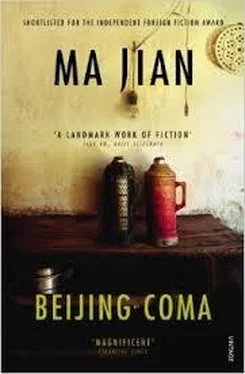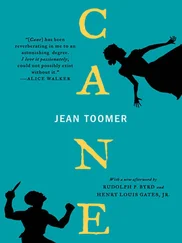We returned to our dorms in high spirits. I wrote a letter to Tang Guoxian, my loud, sporty friend from Southern University, and enclosed some of the Pantheon Society’s political flyers. I told him that Mou Sen found the atmosphere at Beijing Normal depressing, and spent most of his time hanging out in my dorm at Beijing University playing games of Mahjong that would last for two days at a time.
Tang Guoxian was still at Southern University. Wu Bin had taken up a research fellowship at the Wuhan College of Engineering. Sun Chunlin, who’d lent me The Interpretation of Dreams , had left academia and gone to make his fortune in the Shenzhen Special Economic Zone. Through his uncle’s backdoor connections, he’d managed to gain a managerial post in a road construction company there.
At the end of November, Sun Chunlin came up to Beijing on a business trip and took our Southern University gang out for an expensive meal. Mou Sen brought Yanyan, the Workers’ Daily reporter, with him. He confided in me that she’d agreed to be his girlfriend.
You long to cast off your cocoon. Your mouth is a locked door without a key.
When the sun goes down, a sharp wind blasts through the winter night. It brushes over my skin, sucking the warmth from my clothes and blankets, and soon the room is freezing cold.
I imagine gazing at myself through the eyes of a bird. I see myself lying flat on the bed, my nose protruding pathetically from the centre of my face, and my mother sitting on the edge of the bed, with stiff hands and cold feet.
Then I fly out of the window, and from the rooftops I see the lamplight shining obliquely on a battered bicycle frame chained to the railings. I hear the refuse truck winch a metal bin up from the ground. As the chain twists around the cylinder, there’s a bang, bang, bang like a burst of shots from a machine gun. When the bin reaches the open top of the truck and tilts down, scraps of rubbish fall onto the ground. The noises make the blood rush faster through the veins circling my rectum. The striated muscles of the external anal sphincter relax, allowing a stream of air cooler than my body temperature to slip inside me. Then there’s a crash as the bin is flung against the inside wall of the truck, and the flapping of the metal lid as the empty bin is pulled up. The truck then drives away, leaving a stink of rotting refuse that lingers in the air for hours.
When I was a child, I once tipped over a huge rubbish bin, just for the fun of it, then bolted back home. Our flat wasn’t far away, but it seemed as though I’d never reach it. A fear gripped the small of my back and spread through my entire body. In my dreams, I return to this moment again and again. I am running as fast as I can. Sometimes a huge rock pursues me from behind, but in front of me there’s always our rectangular, red-brick apartment building, lying on the ground like a coffin.
As I listen to the sounds around me and the blood racing through my body like cars speeding down a motorway, I know that I’m unable to stop breathing and die, as my mother longs for me to do. I have no control over my life or death. I am a captive now, like a lungfish in a muddy bank, sleeping through the summer drought. But the lungfish’s captivity is only seasonal. Before it sinks into its fake death, it knows it will come back to life when the rains return and fill the riverbed once more with water. Its death is a form of survival. It dies but doesn’t rot.
But when I was alive, I made no preparations for death, whether real or fake. I was in my early twenties, studying for my PhD in molecular biology. My dorm was in Block 29. The window looked out onto the Triangle — a small yard lined with bulletin boards which was the liveliest spot on the Beijing University campus.
While thoughts and desires travel through your temporal lobes, you listen to the noises inside your body, trying to gauge where you are.
I remember the heavy snow that fell in late December 1986. It covered my dorm’s windowsill.
I peered down. It was getting dark, but there was still a large crowd milling around in the Triangle. Earlier that month, student demonstrations had flared up in Anhui Province, then Shanghai, and today news had reached us that students of Beijing’s elite Qinghua University had also taken to the streets, protesting at the government’s slow pace of reform. A notice quickly went up in the Triangle urging Beijing University students to gather in Tiananmen Square on New Year’s Eve to demand more freedom and democracy. But before anyone had time to read it, a security officer tore it down.
There was no one left in my dorm for Mou Sen to play Mahjong with, so he and I went to look for Wang Fei.
Wang Fei’s dorm was next to mine. The radiator was on full blast. Through the thick tobacco smoke hanging in the air, I could smell his cheap cologne. He and the other guys in the dorm were debating whether to go to Tiananmen Square on New Year’s Eve.
Ke Xi was perched on a table. ‘Beijing University has always played a vanguard role in the past,’ he was saying. ‘But today more than three thousand Qinghua University students took to the streets. If we don’t mobilise ourselves now, we’ll be left behind!’ Ke Xi was studying for a bachelor’s degree in education. He was a truculent, smooth-cheeked eighteen-year-old. When he got worked up, his brow furrowed deeply and his eyes became as narrow as a hawk’s.
‘We must go to the Square,’ Shu Tong said. ‘The Party hardliners want to halt the reform process. Our demonstration will strengthen the reformers’ position.’
‘Don’t waste your time helping those so-called “reformers”, for God’s sake,’ Wang Fei spat. ‘They’re all members of the Communist Party. They’re only pushing through the economic reforms to consolidate their power. They’re not interested in democracy.’ Wang Fei’s Sichuan dialect had softened a little since our time at Southern University. But his eyesight had got much worse. His glasses were so thick now that you could barely see his eyes through them. Whatever the weather, he never took his blue windcheater off, even indoors. He was always coming up with wild plans which he never had the courage to follow through. When we were at Southern University, he often bragged he was going to return to Sichuan and instigate a peasant revolt, but none of us believed him, of course.
‘What if they arrest us?’ I said. ‘It will get marked down on our records.’
‘Don’t be so pathetic!’ Wang Fei sneered. ‘If you’re afraid of getting arrested then don’t join the revolution!’
‘Democracies aren’t created through revolution,’ said Old Fu in his calm and measured way. ‘They have to be built up gradually. The important thing is that society continues to move forward. The reformers have already made great strides.’
Mou Sen sat back and huffed in disdain. ‘We’ve had the chaotic decade of the Cultural Revolution, followed by this decade of muddled reform. The Communist Party creates huge disasters, and then spends years trying to extricate itself from them. We shouldn’t be wasting our talents trying to save the Party. It’s China that needs saving!’
My dorm mate Chen Di was there too. He spent most of his time in Wang Fei’s dorm, only coming back to ours to sleep. ‘The reform process has been like a boat without a rudder,’ he said. ‘It’s smashed into so many rocks that none of us know where it’s going.’
‘If you do go to the Square, I doubt I’ll be able to persuade anyone from Beijing Normal to join you,’ said Mou Sen dejectedly. ‘The place is run like a penal institution. The students are depressed and apathetic. The Ministry of Education has just named us a “model university”. The shame of it!’
Читать дальше












